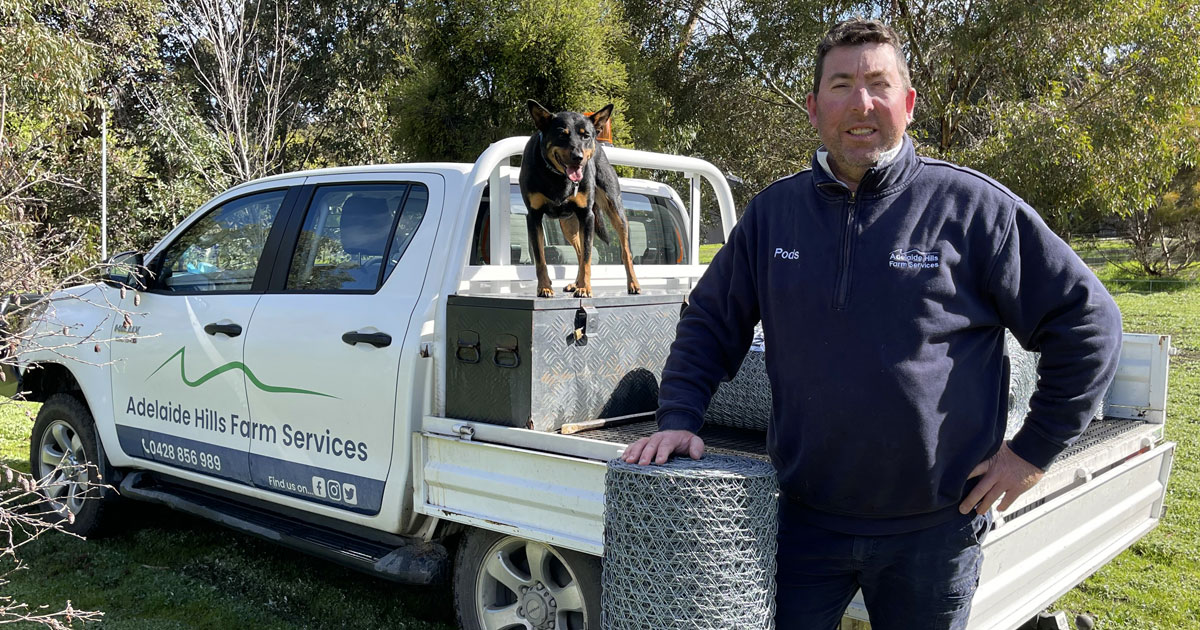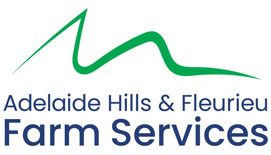
In a warm interview with Leigh Radford on ABC Adelaide Afternoons today, Pods and I were able to react to a listener’s concerns that some lifestyle farmers in the Adelaide Hills were not doing enough (or anything) to manage rabbit populations or other pests.
When asked directly if lifestyle farmers were not being responsible, Pods replied that many lifestyle farmers in the Hills were passionate about their acres, but he conceded there’s always room for more education.
I then added:
We do have a focus on everybody enjoying their farm or property in the Adelaide Hills. We think it’s important, when they purchase their property, that they want to be a part of the rural industry or agriculture up here, so a part of that is being a good neighbour, which means managing feral animals to their best of their ability, managing noxious and declared weeds, and undertaking bushfire risk reduction.
We’re here to educate and work with all property owners and farmers in the Adelaide Hills, and that’s why Leigh’s invitation to join the ABC Adelaide afternoon radio program was so invaluable.
There is a player, below, in case you missed the interview, but we’ll also add some other notes, to help you get your bearings with some of the key themes that arose during the interview.
Tips for property owners who are lifestyle farming in the Adelaide Hills
Here are some notes about dealing with rabbits
Control of rabbits is important because they actively compete with native animals for food resources and damage sown crops and native plants by ringbarking trees and shrubs and inhibiting regeneration by eating seed and seedlings.
Rabbit warrens are also responsible for soil erosion and destabilisation, which is why competition and land degradation by rabbits is listed as a key threatening process under the Commonwealth Environment Protection and Biodiversity Conservation Act 1999.
One of the most effective things you can do is to carry out a Pindone (carrot) baiting program managed by the Hills & Fleurieu Landscape Board (formally the NRM Board). They have a fabulous video on their home page with all the instructions. If you’re not comfortable handling a baiting program on your own, we can manage it for you. Baiting will get best results if done in late Summer/Autumn when their normal food sources are scarce.
The picture, above, is of Pods getting ready to install some rabbit ‘proof’ fencing. It is a cyclone mesh that is dug under the ground, with an extra apron to guard against burrowing. This is something we can supply and then help you install.
Other options include:
- Removing available refuge – rubbish, wood piles
- Destroying warrens
It’s also important to note that under the Landscape South Australia Act 2019, which has recently replaced the Natural Resources Management Act, 2003, it is your legal responsibility as a landowner to control rabbits on your property.
Here are some notes about dealing with kangaroos
Kangaroos are quite a challenge to farmers in the Adelaide Hills, because they can ravage crops.
Standard fences are not adequate, which is why we are called upon to install kangaroo exclusion fencing.
As Pods explained in the interview, the number one way kangaroos get through fences is to try crawling or digging under the fence. That’s why, the kangaroo exclusion fences we supply are not only 1.5m high, but they have a 300mm apron at the bottom of the fences, running to the outside of the property, so that it foils a kangaroo’s attempts to get under the fence.
Things you can do other than installing kangaroo exclusion fencing include:
- Reducing / removing their food source
- Undertake regulated culling
Here are some notes about dealing with weeds
As you might have guessed from the previous notes, as a land owner, you have a direct responsibility to control noxious and declared weeds on and around your property.
It’s difficult to give a brief overview in an article like this because there are a variety of different approaches required, depending on the weeds.
For example, some weeds need to be hit when flowering, other after flowering.
The most reliable way to make headway is to call Pods because he is an accredited spray technician (one of few in the Adelaide Hills) with more than 20 years experience in weed control and management.
You can read more about weed management here, and we also have a page about bushfire risk reduction.
Many thanks to Leigh Radford, and his producer, Carol, for inviting us onto the program to keep this conversation alive.
The Leigh Radford interview with Belle and Pods on ABC Adelaide
And now, here’s the interview.
